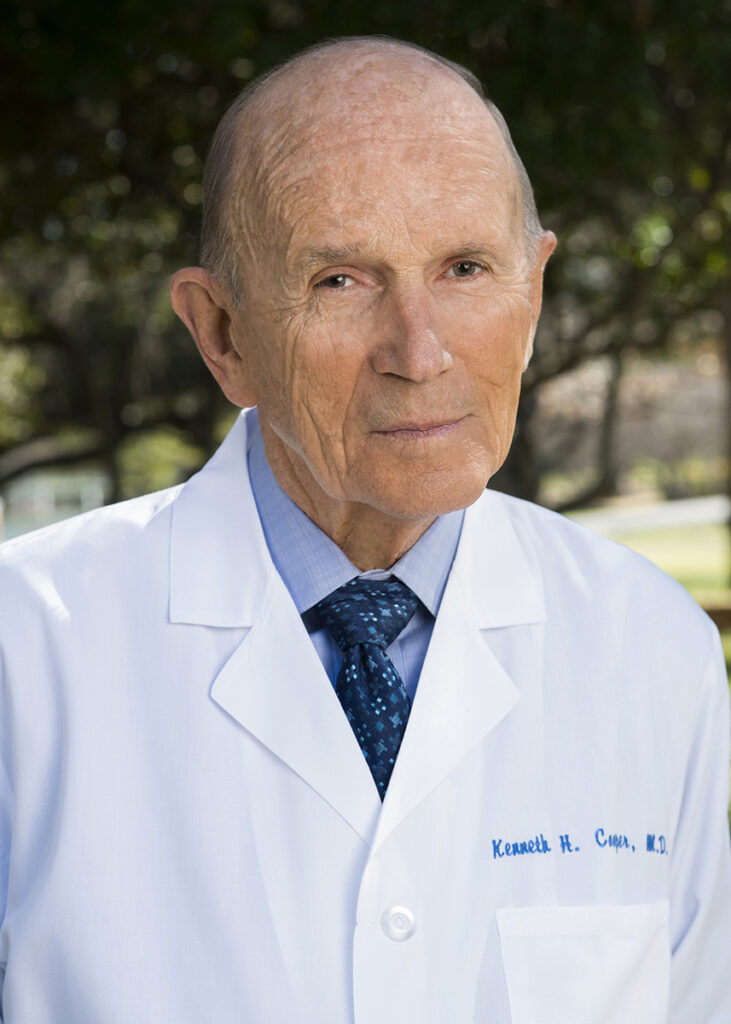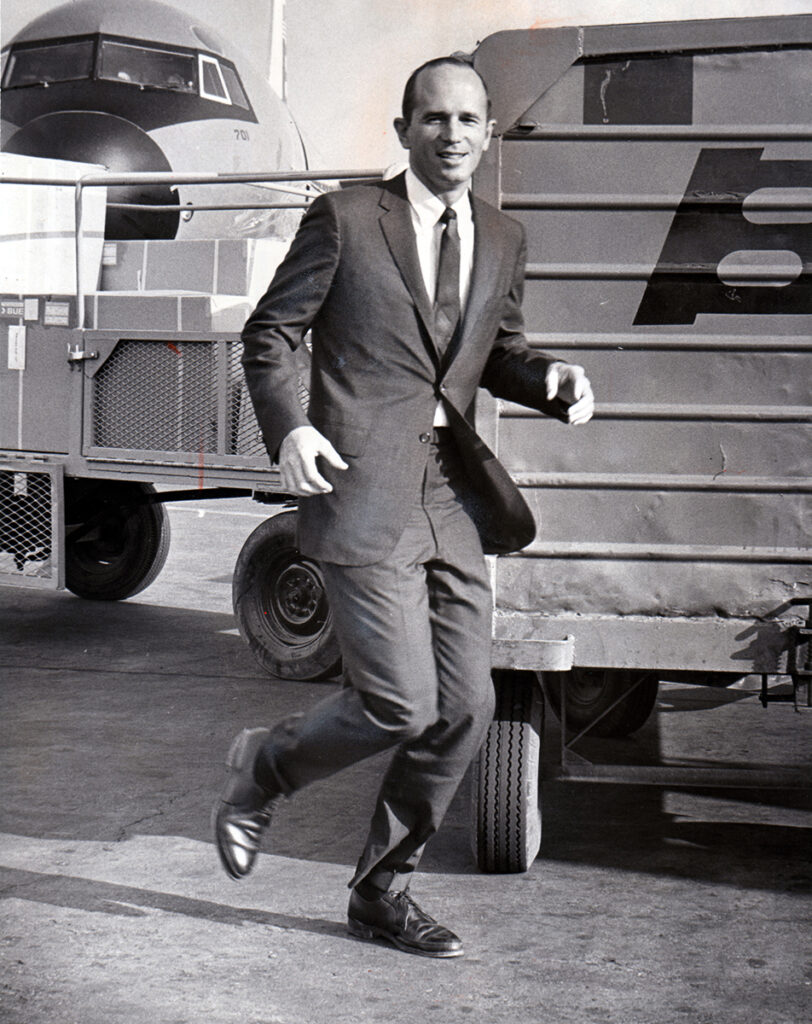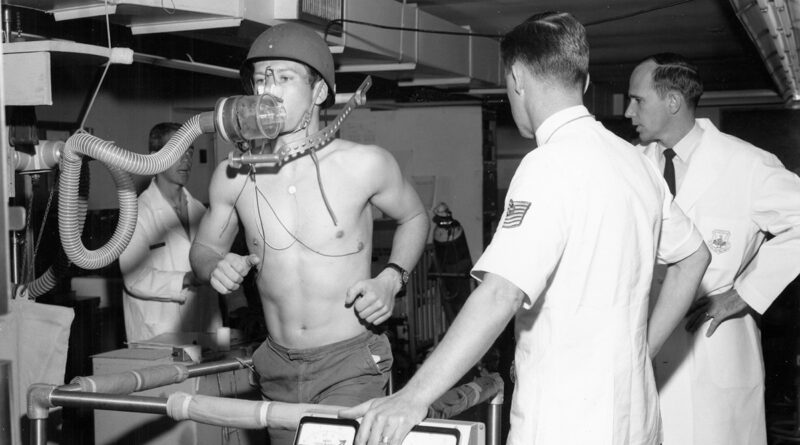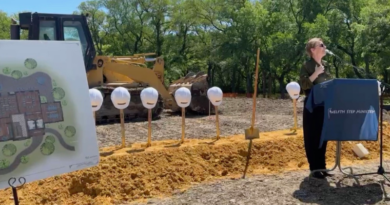‘They Say There’s No Money in It’
Cooper Clinic founder funds film on how he proved doubters wrong
The new documentary The Power of Prevention & The Impact of Aerobics follows the remarkable life and groundbreaking work of a local fitness legend, spry 92-year-old Dr. Kenneth Cooper.

It’s hard to imagine, but in 1968 when Cooper coined the term with publication of his book Aerobics, there was no prevailing medical consensus that exercise was good for you — especially as you age — actually, quite the contrary.
“One scientific journal said, ‘Cooper is going to kill more people than Hitler,’” Cooper chuckled. “The criticism was rabid. It was terrible.”
But public opinion has changed since 1970 when he opened his highly successful and esteemed Cooper Institute and Cooper Clinic, which now boasts a six-month waiting list. The film, which includes testimonials from such illustrious patients as Ray Hunt, Roger Staubach, and former President George W. Bush, has been a long time coming.
“In 2019, I was invited to speak at the United Nations,” Cooper said. “The presentation was about how it’s cheaper to prevent diseases than to find a cure. They were so impressed, they wanted to make a documentary of that to send around the world under the umbrella of UNESCO. Then COVID hit. As a result of that, they lost the funding. So, I took over the funding myself. It took four years to get this finished, a lot of time, a lot of effort, many hours in front of the camera.”
There are four different versions of the film — the long cut, a 20-minute version, one cut intended for medical students, and one for physicians.
“Preventive medicine has been an oxymoron as far as the medical profession is concerned,” he bemoaned. “They say there’s no money in it.”
An overweight Cooper himself returned to exercise at 29 after a health scare which he thought was a heart attack, firmly believing it was “divine intervention.”

“We’ve published about seven hundred papers now,” he said. “My goal has been to bridge the gap from fantasy to scientific legitimacy in the practice of medicine. We’ve jumped over that gap in proving exercise is medicine.”
“We’ve had a resurgence of interest in marathons,” he said of fitness today, pointing to a recent article in The New York Times. “We go up, down, get criticized. But there’s so much evidence to the health benefits of exercise, you can’t deny it.”
“Fitness is a journey, not a destination,” he said, describing his present daily routine of prayer and Bible study, 30 minutes on a stationary recumbent bike, 10 minutes of weight training, then walking his dogs. “We don’t stop exercising because we grow old; we grow old because we stop exercising.”
Apart from various screenings, the 20-minute version of The Power of Prevention & The Impact of Aerobics can be viewed at cooperaerobics.com/about/documentary, with the full-length version coming soon as part of an informational series.
“I will probably — I don’t know when — give this documentary to UNESCO, because they’re the ones who got me started on it,” Cooper said. “I still practice what I preach. Your health is your responsibility.”







